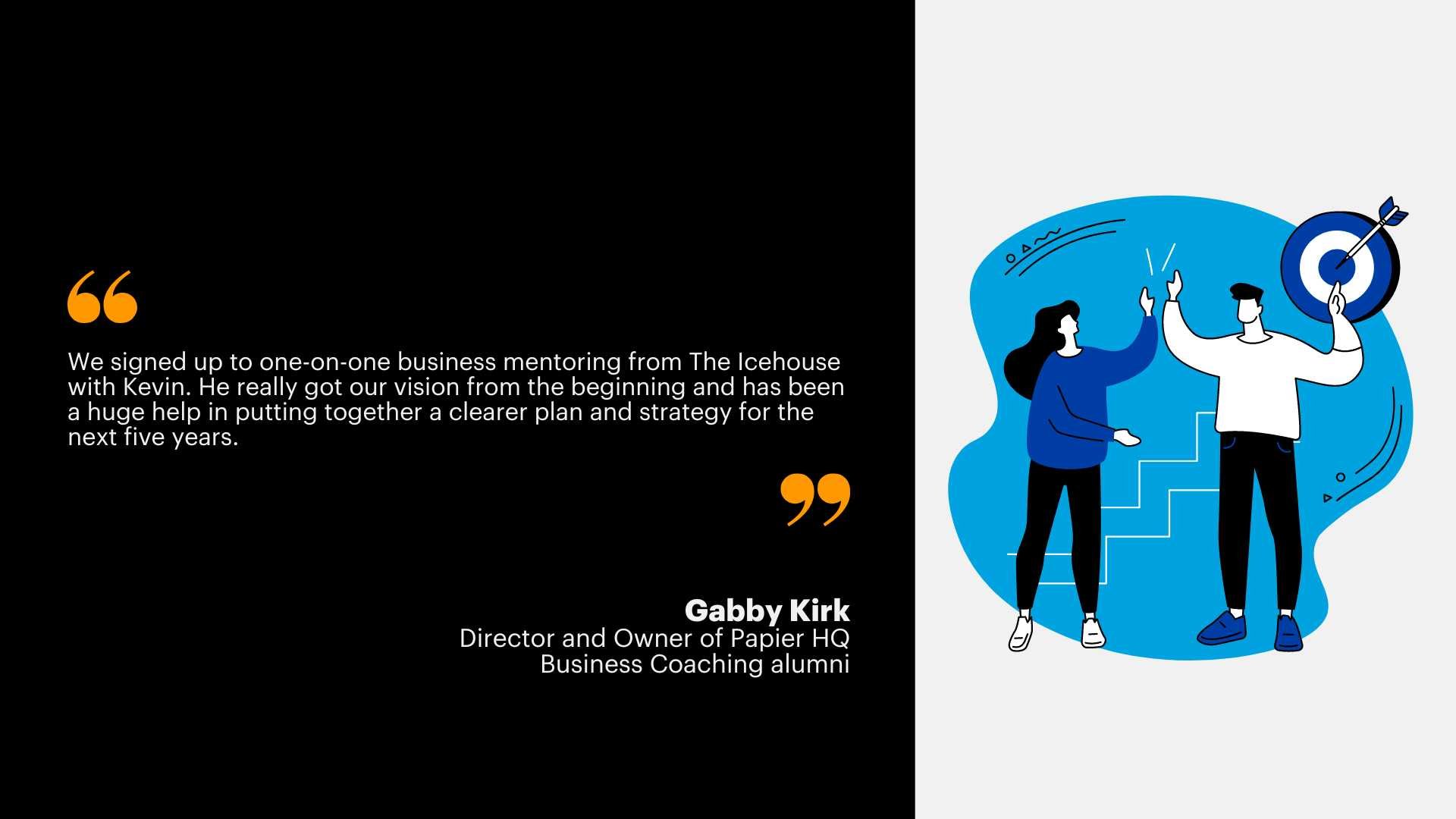Being Held Accountable Over The Long-Term

Who does a business owner turn to make sure they are on track, meeting the goals of the business, and performing to expectation?
As an owner, you’re not really held accountable for your actions or for any of the above. You may even feel you don’t need to be.

However, being held accountable by someone else, in the long-term especially – a trusted advisor or business coach, for example, can be a real asset. It can overcome a specific challenge, put you back on your chosen path, or unlock new and exciting opportunities.
In an ideal world, accountability for business owners means creating a plan of how the organisation must operate, understanding the part you play in making that plan work, and then taking the responsibility to drive meaningful change.
So, why is it important? “In essence, if wanting some change or gain, then accountability is going to give them the best opportunity for that,” says Rhys Walter, business coach with The Icehouse.
“There is no positive change without appropriate action. The most effective action comes when there's constructive accountability that focuses owners to get on track and to stay on track. Sometimes, there may be some specific pressing challenges which require immediate support. However, its essential to establish goals and break these into bite-size steps with longer-term accountability. Owners build momentum and confidence as they get moving and feel like they are achieving. This excites and motivates them to sustain commitment and keep moving forward.”
“What can happen for many owners is that they get so busy in the business that they may only be looking month-to-month, or quarter-to-quarter, but they often aren't looking further ahead to make sure that they're moving in a direction that they really want to be.”
At The Icehouse we understand there might be a few misconceptions and obstacles around accountability through coaching; the owner is too busy, won’t find a good coaching fit or doesn’t really want to be told they’re doing something wrong. However, long-term accountability can be transformative.
“I really felt that the last thing I needed was someone every week, month, fortnight, or whatever, saying well why have you not done this yet,” says Amanda Barker at Pillar Consulting and an Icehouse business coaching alumni.
“He [Jamie Brock, Icehouse coach] does hold us accountable, but in a positive manner. It is all about, if you guys do this, it could turn your business from turning over X to turning over Y amount, the possibilities are endless. Because we know why we are doing what he is asking or suggesting that we do… that is great, so we sit down, we make time, and we do it.”
Employees who feel responsible for their actions are more likely to perform well than their peers. The same goes for owners. We’re 40% likely to achieve a goal with a specific deadline in place, and 95% likely to achieve our goals if we have a specific accountability appointment with someone we’re committed to, according to The American Society of Training and Development.
For Kevin D’Ambros-Smith, business coach with The Icehouse, long-term accountability begins with setting those all-important deadlines.
“Everyone works better when there are deadlines in place and they’re more effective when you're accountable to someone else. If you've discussed it with someone and they give you a process to follow, it’s just a case of getting on and doing it because sometimes the hardest thing is getting started,” says Kevin.
Being held accountable doesn’t mean being admonished for not handing in your homework on time. Because many owners are riddled with self-doubt, there’s a positive and emotional response to getting help or simply being told, ‘well done’ by your very own supporter.
“You want someone to review what you've done, because you get there and you're not sure if it's right. If you're working with someone who's got a lot of knowledge and expertise in an area and they say ‘this is good stuff’, you have that confidence to move forward and pivot if you're slightly off. It's all encouragement. It's the cheer squad, it’s someone who cares,” says Kevin.
“We signed up to one-on-one business mentoring from The Icehouse with Kevin. He really got our vision from the beginning and has been a huge help in putting together a clearer plan and strategy for the next five years,” says Gabby Kirk at Papier Hq.
“Being self-employed there is no accountability, so no one to answer to. The negative side to this is it can sometimes be hard to motivate yourself and stay on track… I stay focused and keep up with the tasks I have set myself each week to get the most out of it.”
When the owner has their long-term priorities in place and a visible list of actions which are time-lined and accountable, it's easier to measure those gains and that in turn builds confidence and momentum.
“The biggest thing for us was sitting down and mapping out the next 12 months so we knew what it would look like going forward. It’s very easy to get overwhelmed and not know how to tackle the next hurdles but by breaking it down it makes it feel much more achievable,” says Gabby.
For information on programmes, workshops and business coaching services from The Icehouse, click here.
For more business ownership and leadership advice, check out more of our resources.
Icehouse Alumni? For exclusive content on Icehouse Central, register now.


